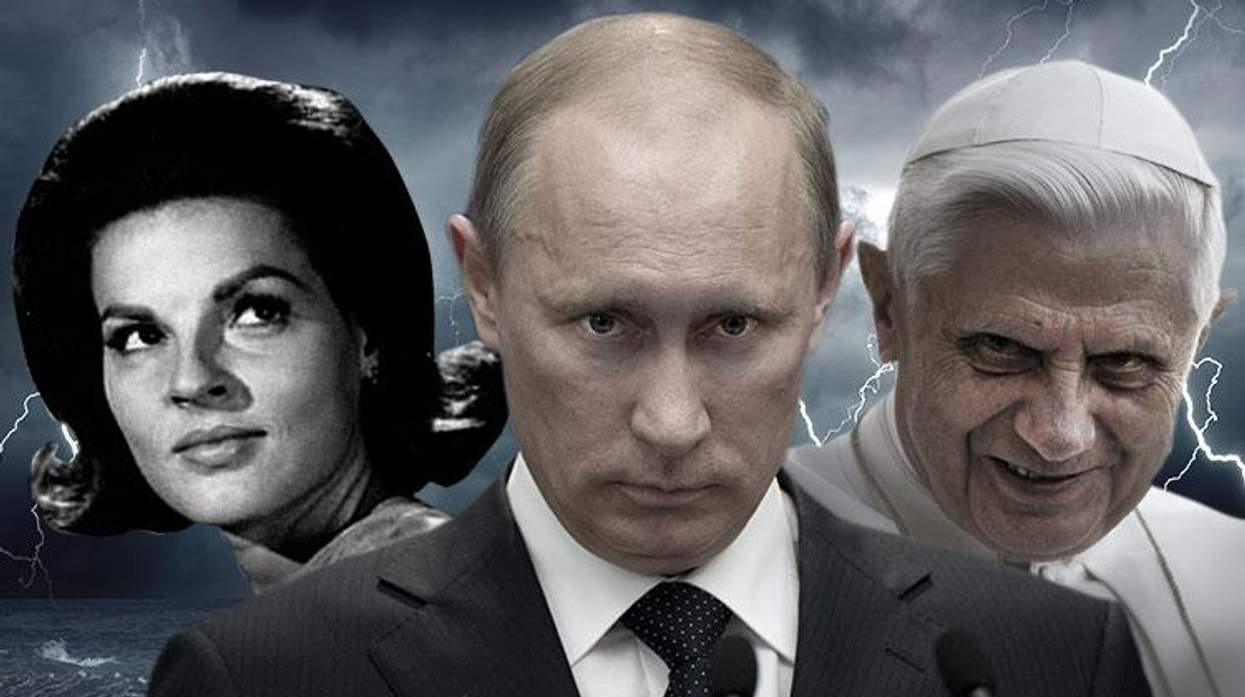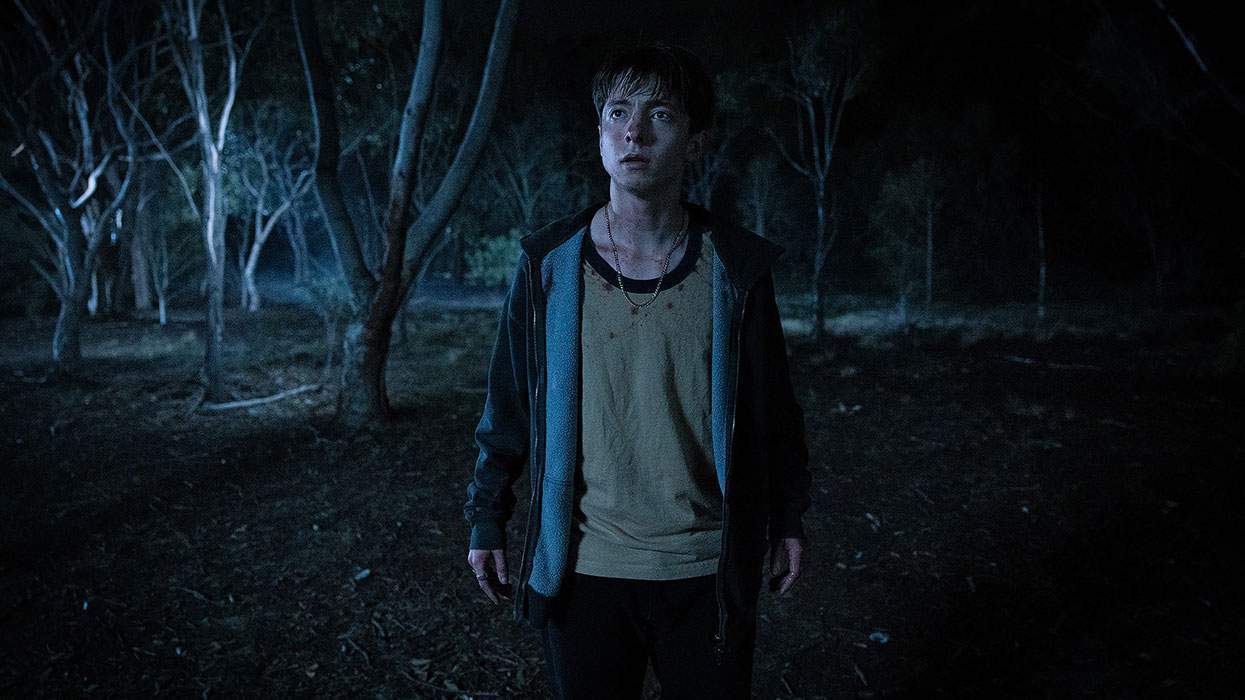19 Cary Grant Films for Your Viewing Pleasure
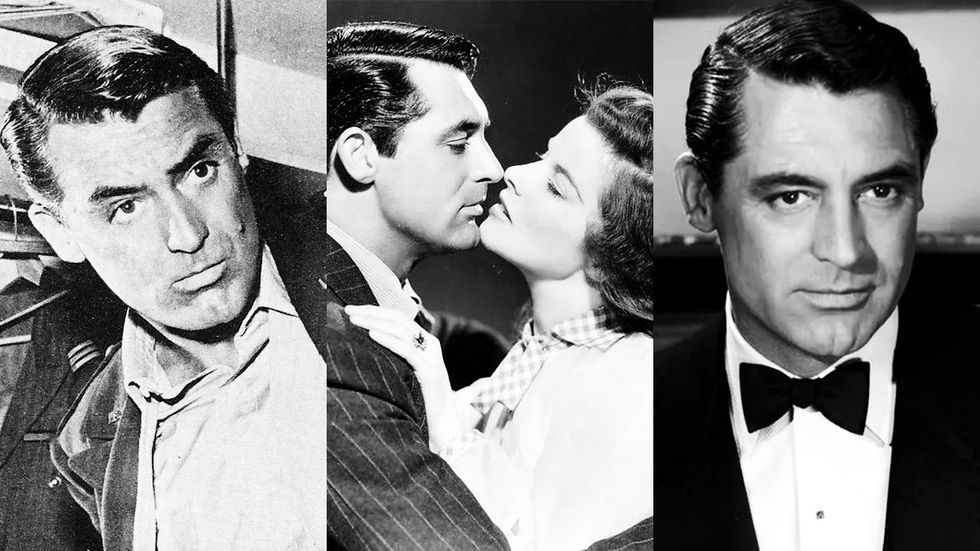
20th Century Fox; Metro-Goldwyn-Mayer; RKO Radio Pictures/Warner Bros. Discovery
Maybe you’re watching the Britbox series Archie, portraying the life of Cary Grant, one of the greatest movie stars of all time. Maybe you’re pondering the question of whether Grant had love affairs with men (he had five marriages to women), something that has been debated for years. Maybe, if you’re not a serious fan of classic Hollywood films, you’re wondering why this guy was such a big deal (beyond his utterly gorgeous looks).
If you’re in the latter category or if you just wonder what Grant films to view, for the first or umpteenth time, have we got a list for you!
There are 19 films on it, and we could have recommended several more. Most are of high quality, although one is just for camp value. The list is heavy on comedies, a genre at which Grant excelled, although he was equally good in suspense films (four directed by Alfred Hitchcock), sentimental dramas, and others. Since the Academy of Motion Picture Arts and Sciences has historically had so little respect for comedy, Grant’s only Best Actor nominations were for two weepy dramas, Penny Serenade and None But the Lonely Heart, which would have made this list if we’d gone on longer — but the comedies and thrillers are so much better. The Academy finally gave Grant his due with an honorary award for his overall body of work in 1970. Herewith, some highlights from that body of work, in chronological order.
Topper (1937)
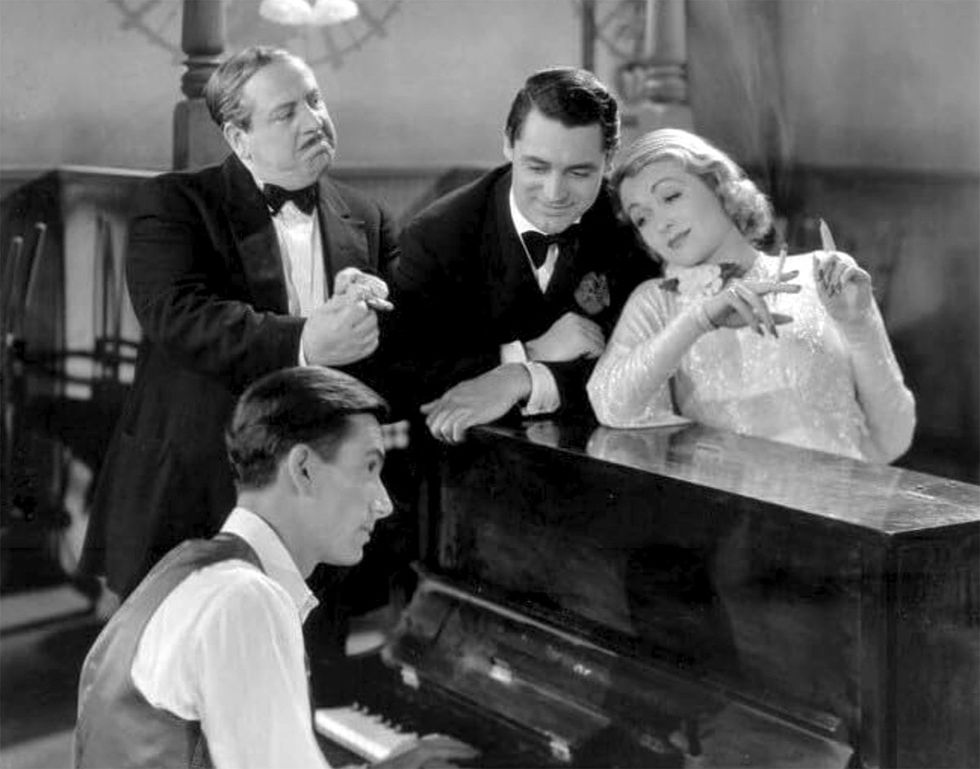
Metro-Goldwyn-Mayer
In his early years in Hollywood, Grant was considered a handsome, competent, but largely interchangeable leading man. He got a chance to display his gift for comedy in the oddball film Sylvia Scarlett (1935), then became a full-fledged star with a couple of 1937 releases, Topper and The Awful Truth. InTopper, based on a popular novel by Thorne Smith, Grant and Constance Bennett play a fast-living society couple who are killed in a car crash but can’t get into heaven until they’ve done a good deed — and that good deed is teaching repressed banker Cosmo Topper (Roland Young) how to loosen up and enjoy life. A great example of screwball comedy, a Depression-era phenomenon — audiences loved seeing rich people make fools of themselves.
The Awful Truth (1937)
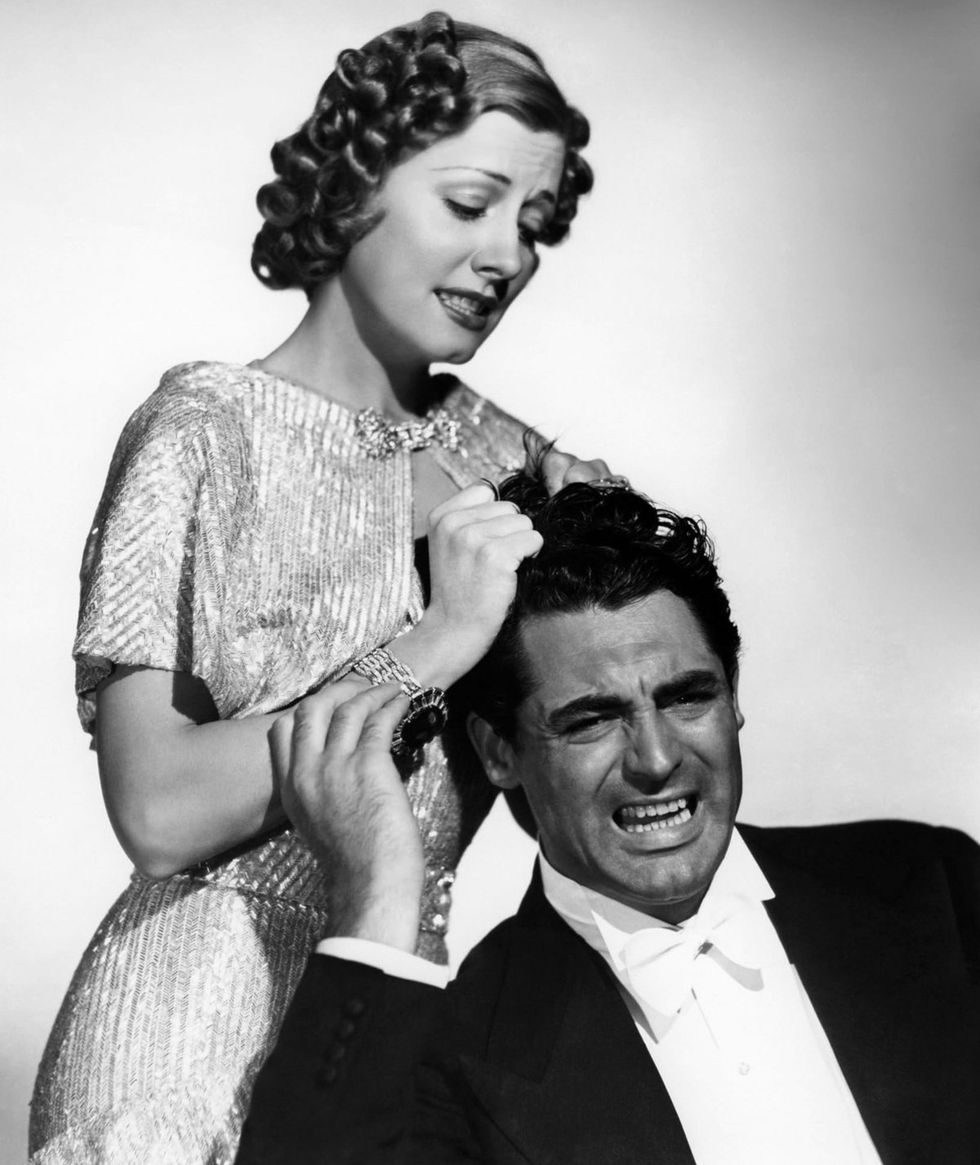
Image: Columbia Pictures
The Awful Truth has Grant and frequent leading lady Irene Dunne as a wealthy New York couple who decide to divorce over a breach of trust. Since it took a while for a divorce to be finalized in those days, complications ensue while Grant and Dunne are waiting. Among them, Dunne considers marriage to a dull Oklahoma oilman played by Ralph Bellamy, who will also turn up later in the Grant filmography. Plus the divorcing spouses have a custody dispute over their dog, Mr. Smith, played by none other than Asta from the Thin Man movies.
Bringing Up Baby (1938)
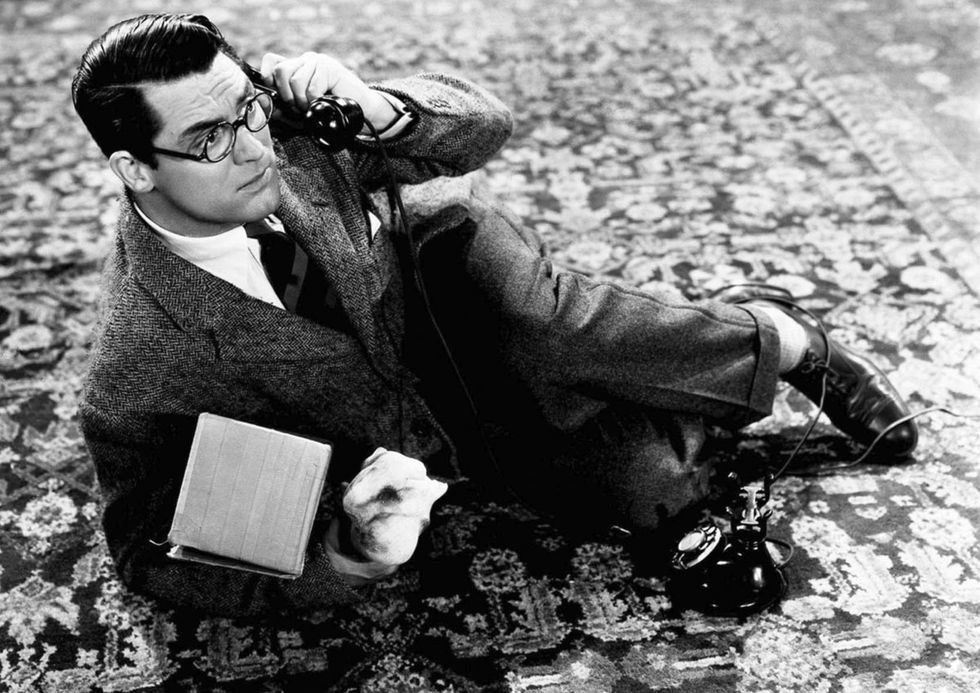
Image: RKO Radio Pictures/Warner Bros. Discovery
Bringing Up Baby is one of the ultimate screwball comedies. Directed by Howard Hawks, who loved strong women characters and rapid-fire, overlapping dialogue, it has Grant as a paleontologist trying to complete a dinosaur skeleton and raise money for a museum and Katharine Hepburn as a goofball heiress whose antics threaten to derail all of his plans. There’s also a tame leopard named Baby, a mischievous dog (Asta again, here called George), Barry Fitzgerald as a hilariously drunken gardener, and the unforgettable scene in which Grant, in a feather-trimmed negligee, exclaims, “I just went gay all of a sudden!”
Holiday (1938)
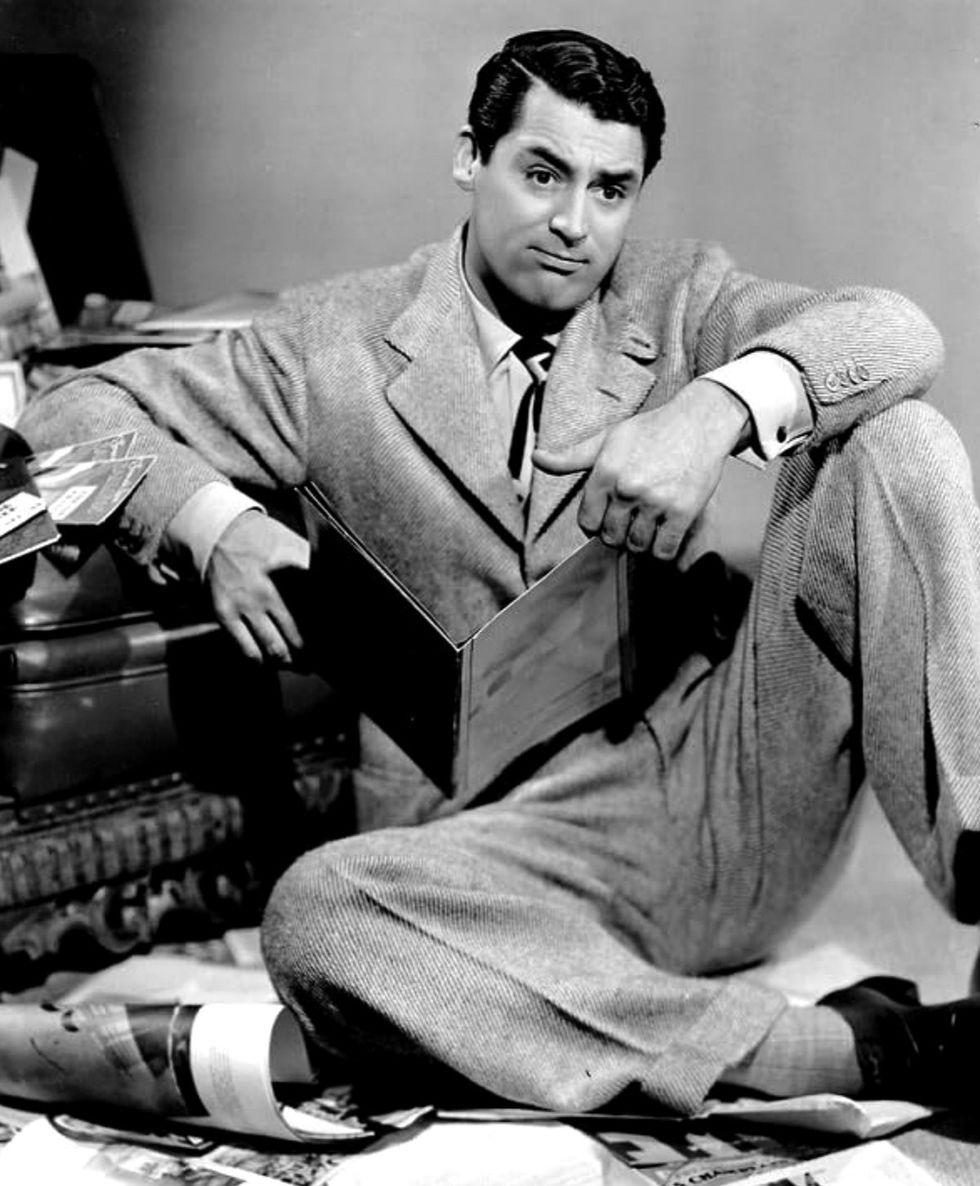
Image: Columbia Pictures
Holiday, again with Hepburn (Grant’s best leading lady, IMHO), is a comedy that’s not so screwball and even has some serious things to say. In this adaptation of a Broadway hit by Philip Barry, Grant’s Johnny Case has worked his way up from poverty to business success but wants to take a “holiday” to expand his life experiences while he’s still young. However, his fiancée, Julia Seton (Doris Nolan), is from an old-money family and has doubts about his plan. It takes a while for Johnny to see that her unconventional sister, Linda (Hepburn), is a better match for him. With excellent supporting performances from Lew Ayres as the sisters’ cynical, alcoholic brother, and the great (and gay) character actor Edward Everett Horton as a quirky professor friend of Johnny’s. Directed by another gay great, George Cukor.
His Girl Friday (1940)
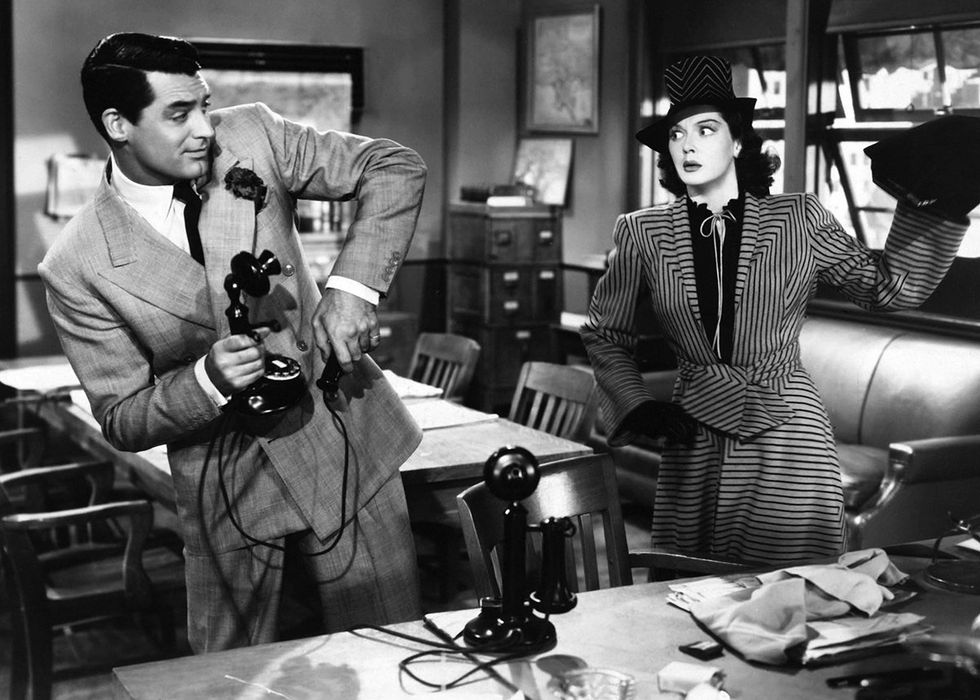
Columbia Pictures
His Girl Friday is based on The Front Page, a play by Ben Hecht and Charles MacArthur about an unscrupulous newspaper editor trying to hang on to his star reporter, who wants to leave for a career in advertising. It had been filmed for the first time in 1931, but for the remake His Girl Friday, directed by Howard Hawks, star reporter Hildy Johnson became a woman and the ex-wife of editor Walter Burns. She wants to leave for marriage to a dull businessman played by, you guessed it, Ralph Bellamy, but Walter tempts her into covering one last big story. Grant and Rosalind Russell spar hilariously as Walter and Hildy, and the film also features a couple of great in-jokes, one involving Bellamy and another referring to Grant’s birth name. BTW, Bellamy was really a good actor and sometimes got the chance to play something other than dullards.
My Favorite Wife (1940)
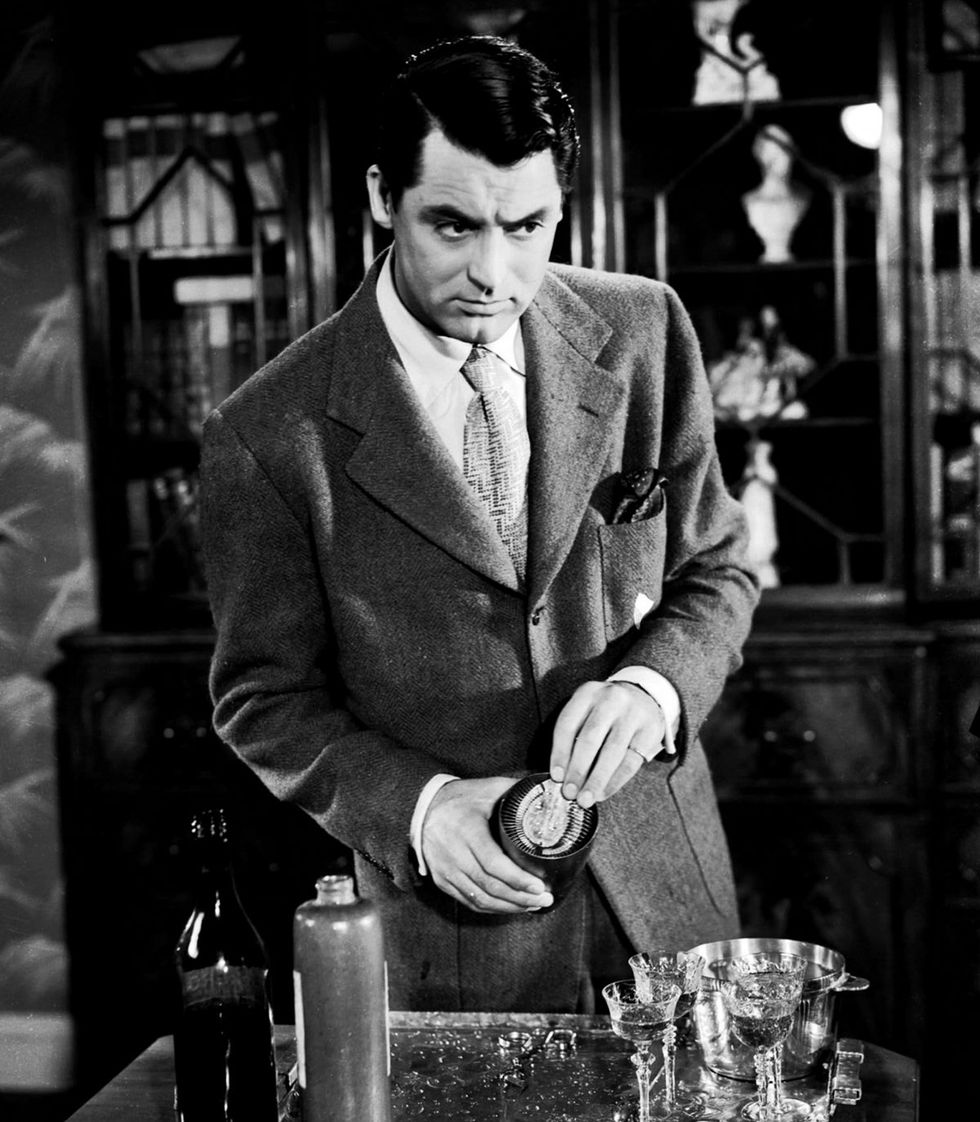
Image: RKO Radio Pictures/Warner Bros. Discovery
My Favorite Wife is another comedy of marital complications with Irene Dunne. Grant is Los Angeles attorney Nick Arden, whose wife, Ellen (Dunne), has been declared dead after being lost at sea. But Ellen turns up alive just as Nick is remarrying. He has to decide what to do about his surfeit of spouses while having a fit of jealousy after finding out Ellen was marooned with handsome athlete Stephen Burkett (Randolph Scott, Grant’s onetime roommate and rumored lover). Watch for some superb physical comedy by Grant — he was a master.
The Philadelphia Story (1940)
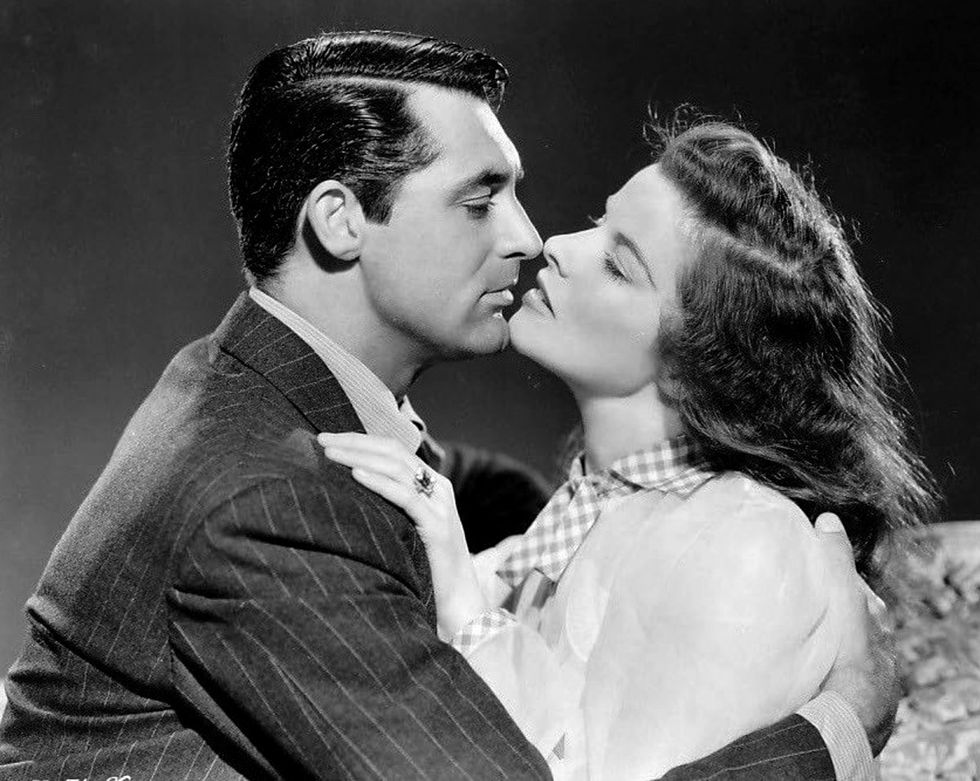
The Philadelphia Story, again costarring Hepburn, directed by Cukor, and based on a Philip Barry play, is a sophisticated comedy that just might be Grant’s best movie. Hepburn is Philadelphia socialite Tracy Lord, and Grant is her ex-husband, C.K. Dexter Haven, who’s none too happy about her impending second marriage, to the self-important self-made man George Kittredge (John Howard). James Stewart and Ruth Hussey round out the leads as a reporter and photographer covering Tracy’s wedding for a gossip magazine. There are a few lines that are cringe-making because of their sexism, but there are so many wonderful lines, delivered so well by the cast, it’s easy to overlook those. And there’s a standout supporting performance from child actress Virginia Weidler as Tracy’s precocious and outrageous younger sister, Dinah. Stewart won the Oscar for Best Actor, and screenwriter Donald Ogden Stewart won for his adaptation, but the film deserved many other awards.
Suspicion (1941)
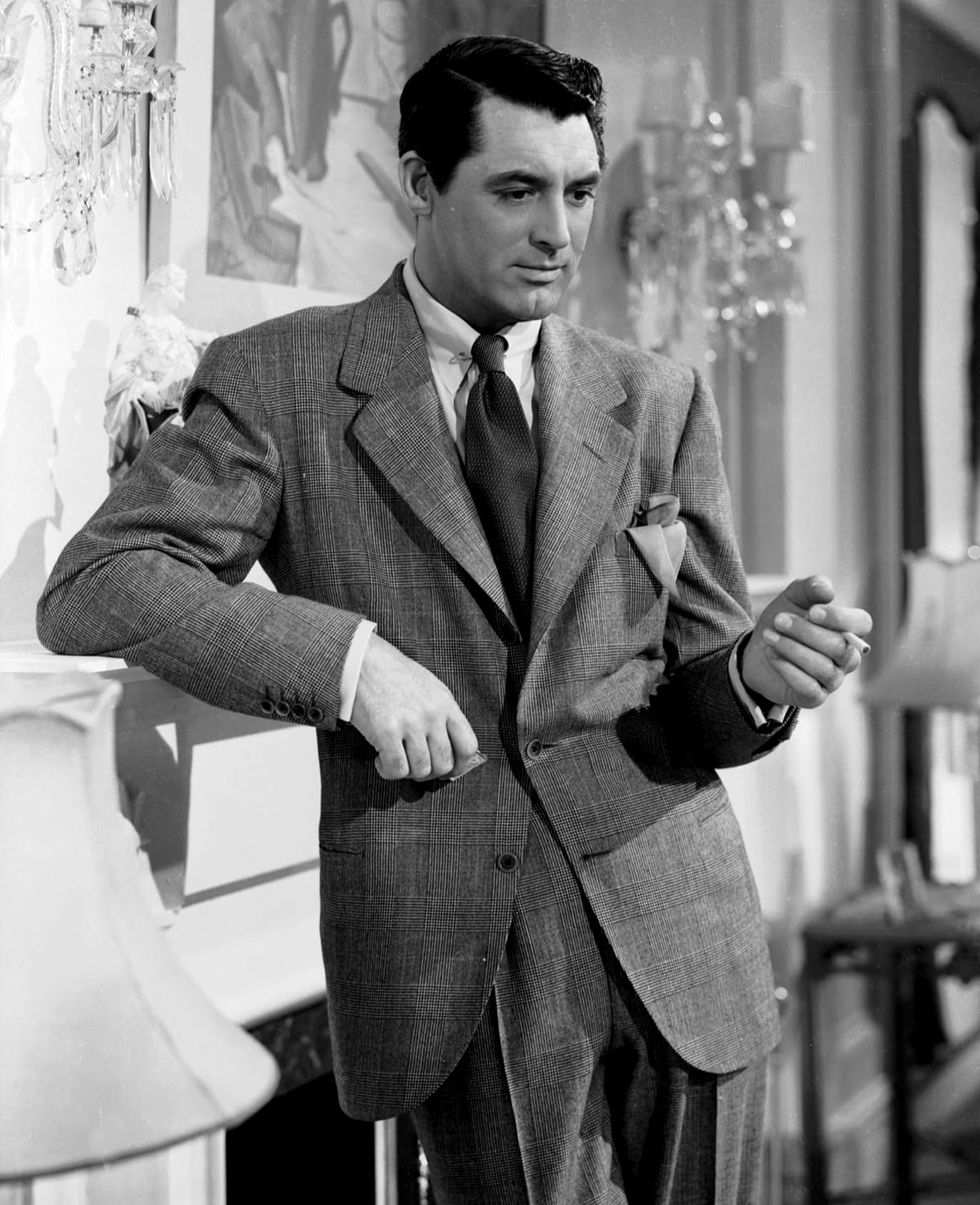
Image: RKO Radio Pictures/Warner Bros. Discovery
Now for some drama and suspense, courtesy of Alfred Hitchcock; Suspicion was the first of four films he made with Grant. Joan Fontaine plays repressed heiress Lina McLaidlaw, who marries the charming but penniless Johnnie Aysgarth (Grant) but soon suspects he’s planning to kill her. Could Cary Grant be a murderer? That was a bone of contention between Hitchcock and the higher-ups. See if you think the ending rings true.
The Talk of the Town (1942)
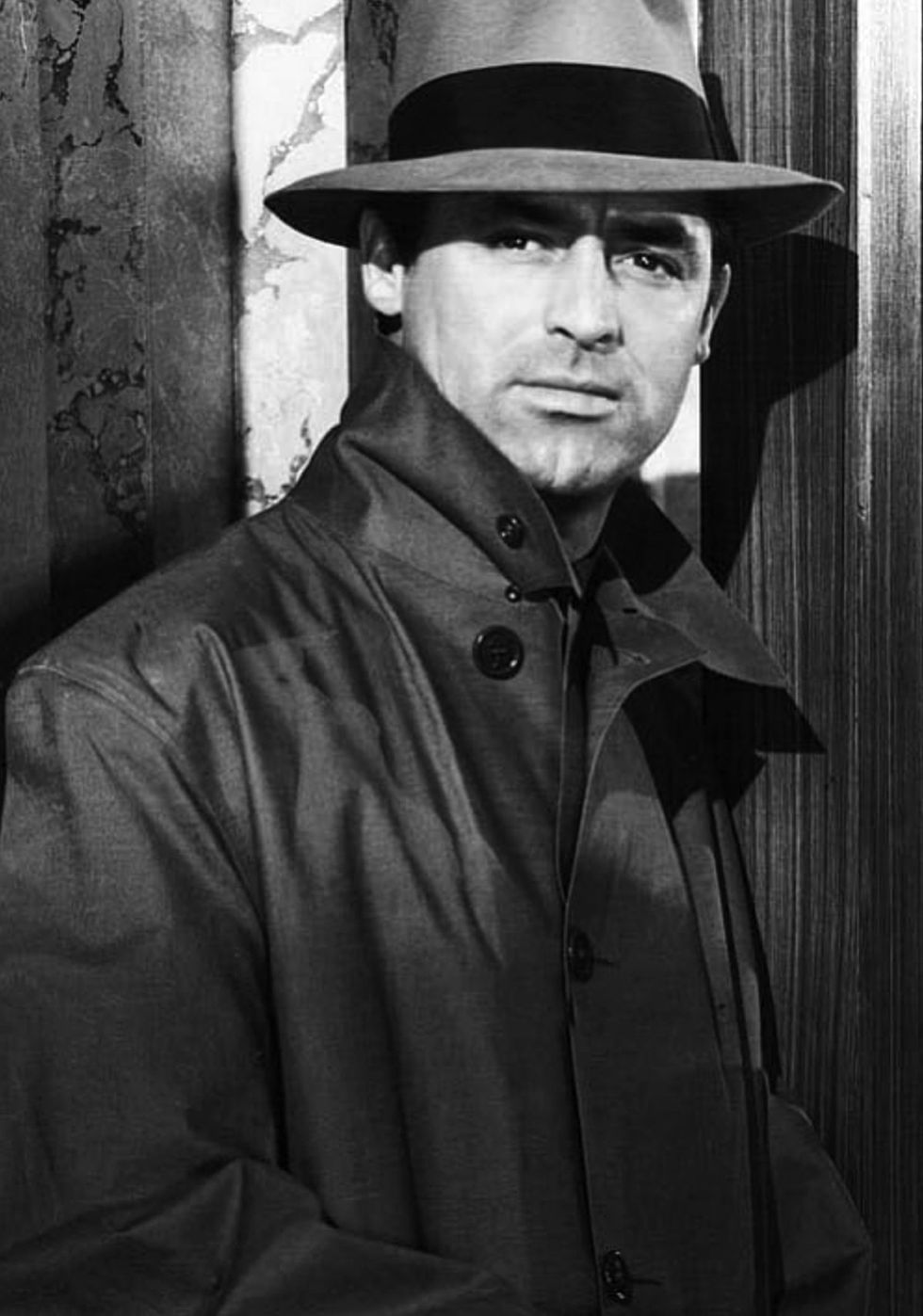
Image: Columbia Pictures
The Talk of the Town is a lovely comedy of ideas with a love triangle formed by Grant, sparkling comic actress Jean Arthur, and velvet-voiced Ronald Colman, one of the few actors who could be a believable romantic rival to Grant. In a small New England town, Arthur is schoolteacher Nora Shelley; Colman is law professor Michael Lightcap, renting Nora’s house for the summer; and Grant, in a change from his usual suave, upper-class persona, is local rabble-rouser Leopold Dilg, who’s been wrongly accused of burning down the factory where he worked and causing the death of a foreman there. Under George Stevens’s direction, the film deals with questions of justice while keeping us guessing about which man Nora will choose.
Arsenic and Old Lace (1944)
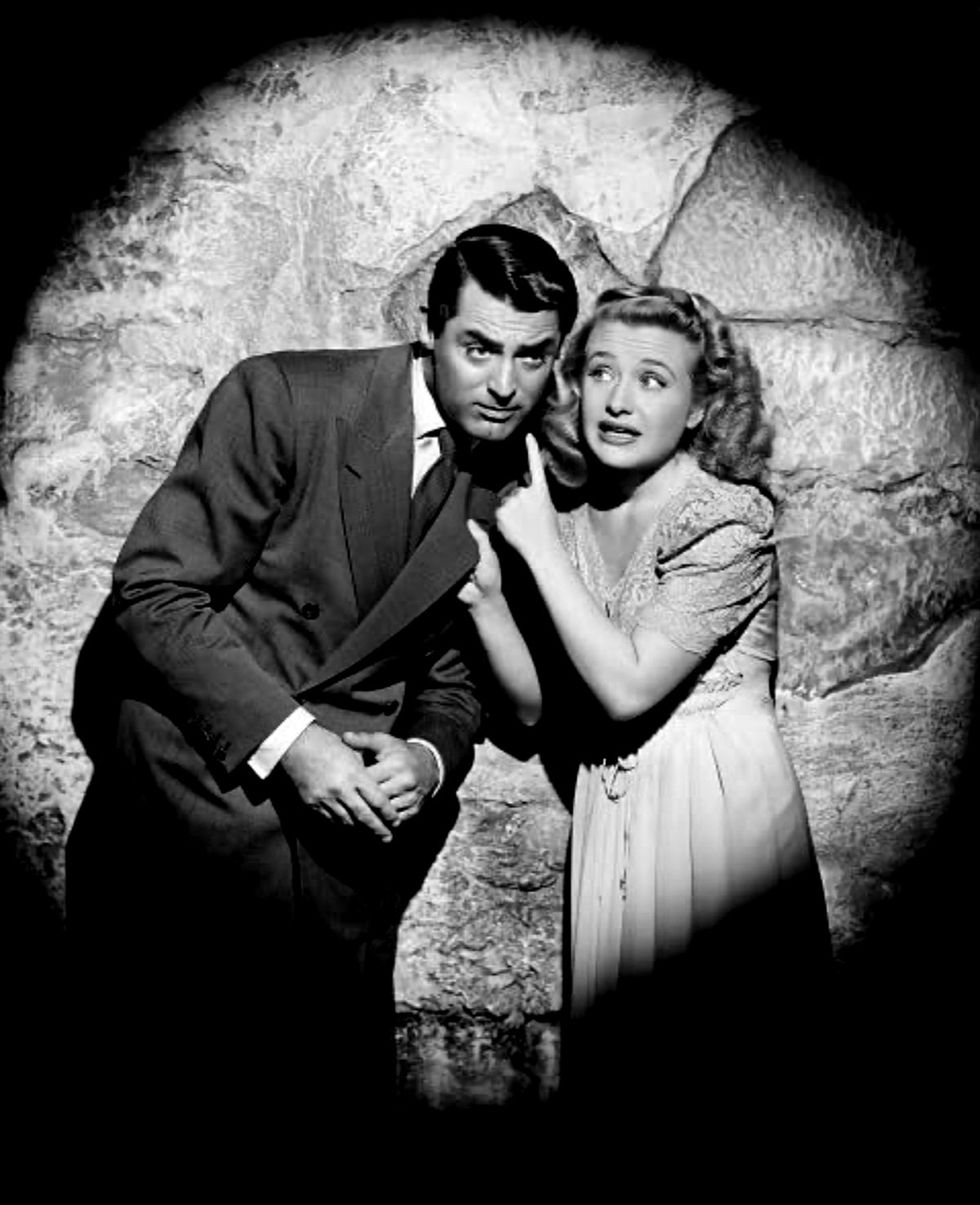
Image: Warner Bros.
Grant was critical of his own performance in Arsenic and Old Lace — he thought he was way over the top — but many of us love the film, and him in it. He’s drama critic Mortimer Brewster, who’s just married a nice young woman named Elaine (Priscilla Lane) but finds out the dear aunts who raised him, Abby and Martha (Josephine Hull and Jean Adair), have been killing lonely old men with poisoned wine and burying them in the basement of their home in Brooklyn. It’s a mercy, they explain. Mortimer fears that insanity runs in his family, or practically gallops — he already knew that his brother Teddy (the delightful John Alexander) believes himself to be Theodore Roosevelt, and another brother, Jonathan (Raymond Massey), is a serial killer who turns up after a long absence. It’s hilarious throughout, enhanced by great supporting actors including Peter Lorre, Jack Carson, James Gleason, and, again, Edward Everett Horton. Julius J. and Philip G. Epstein, the twin screenwriters who collaborated on Casablanca, adapted Joseph Kesselring’s Broadway hit, and Frank Capra directed.
Night and Day (1946)
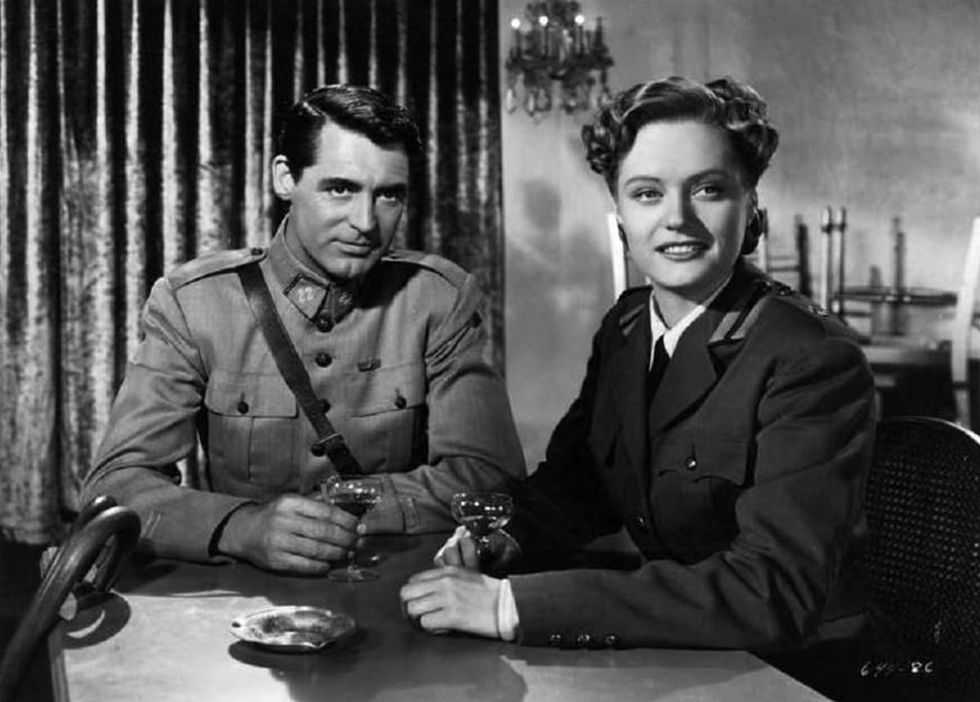
Image: Warner Bros.
Now for something that’s unintentionally humorous. Grant plays the gay Broadway composer Cole Porter as completely straight and very much in love with his wife, Linda (Alexis Smith) — well, the Production Code, Hollywood’s organ of self-censorship, prevented anything but a deeply coded portrayal of homosexuality. And sexual orientation aside, Grant’s brand of charm was very different from Porter’s, so the actor was miscast. But you can enjoy Night and Day for its camp value, the fabulous Porter songs, and the appearance of wonderful character actor Monty Woolley, a gay man and real-life friend of Porter’s, as himself.
Notorious (1946)
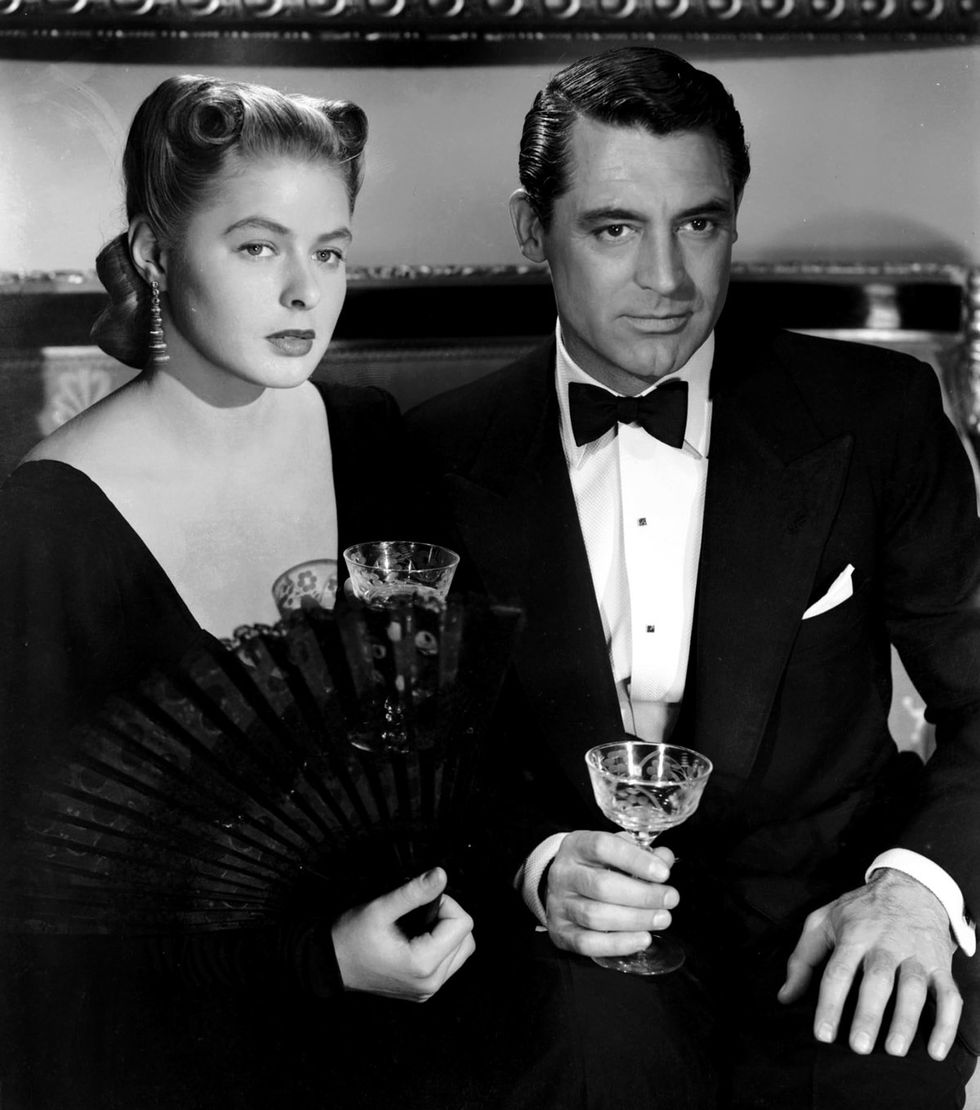
Image: RKO Radio Pictures/Warner Bros. Discovery
From the ridiculous to the sublime: Grant reunited with Hitchcock for one of Hitch’s best films, Notorious. Grant is federal agent T.R. Devlin, who recruits playgirl Alicia Huberman (Ingrid Bergman), the daughter of a Nazi but hater of that ideology, to spy on postwar Nazi expatriates in Rio de Janeiro. Her work demands that she marry one of them, Alexander Sebastian (Claude Rains), even though she and Devlin have fallen in love. Alex finds Devlin pretty attractive too. All three leads are terrific, as is Leopoldine Konstantin as Sebastian’s sinister, suspicious mother. Hitchcock finds suspense in the search of a wine cellar and provides many other edge-of-the-seat moments, while directing Grant and Bergman in one of the steamiest love scenes in cinema history.
The Bachelor and the Bobby-Soxer (1947)
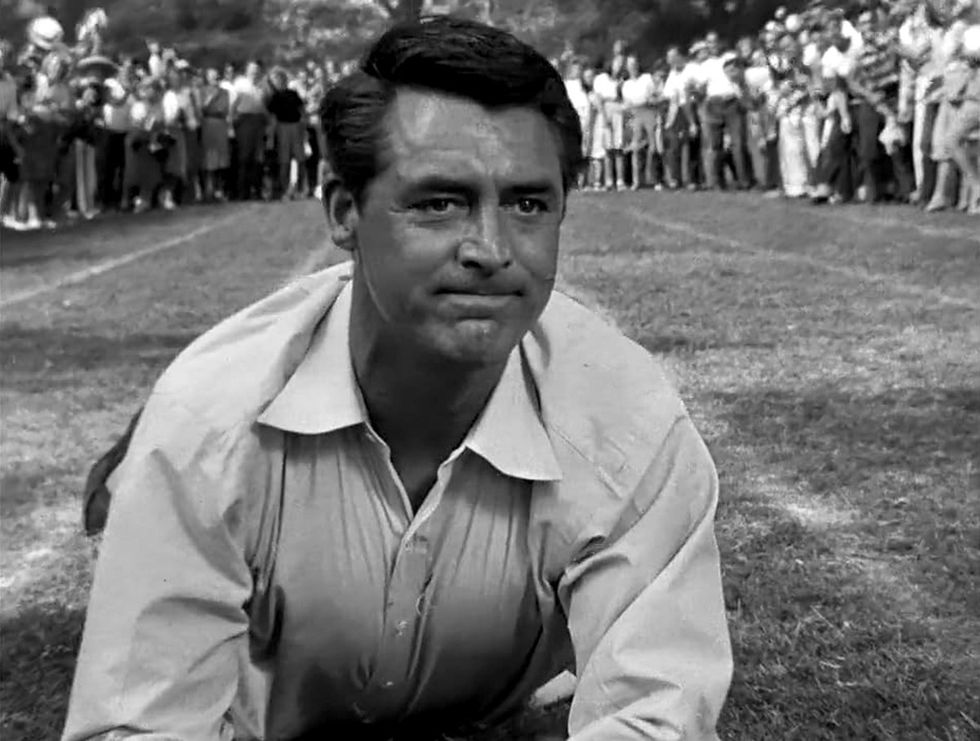
Image: RKO Radio Pictures/Warner Bros. Discovery
Back to the ridiculous, but lots of fun: In The Bachelor and the Bobby-Soxer, teenager Susan Turner (Shirley Temple) develops a crush on artist Richard Nugent (Grant), who’s always getting into scuffles at nightclubs. Susan’s sister, Judge Margaret Turner (Myrna Loy) decides the best way of breaking Susan of her crush is by sentencing Richard to date her. We know there’ll be a more age-appropriate pairing by the end, but we can enjoy the ride and appreciate the respectful portrayal of a strong and independent woman in addition to Grant's antics as he tries to act like a teen. There’s able support from Ray Collins, Harry Davenport, and Rudy Vallee, plus Oscar-winning screenwriter Sidney Sheldon’s concocted teenage slang — “Mellow greetings, yookie dookie!” and “Don’t be skunklish.”
The Bishop's Wife (1947)
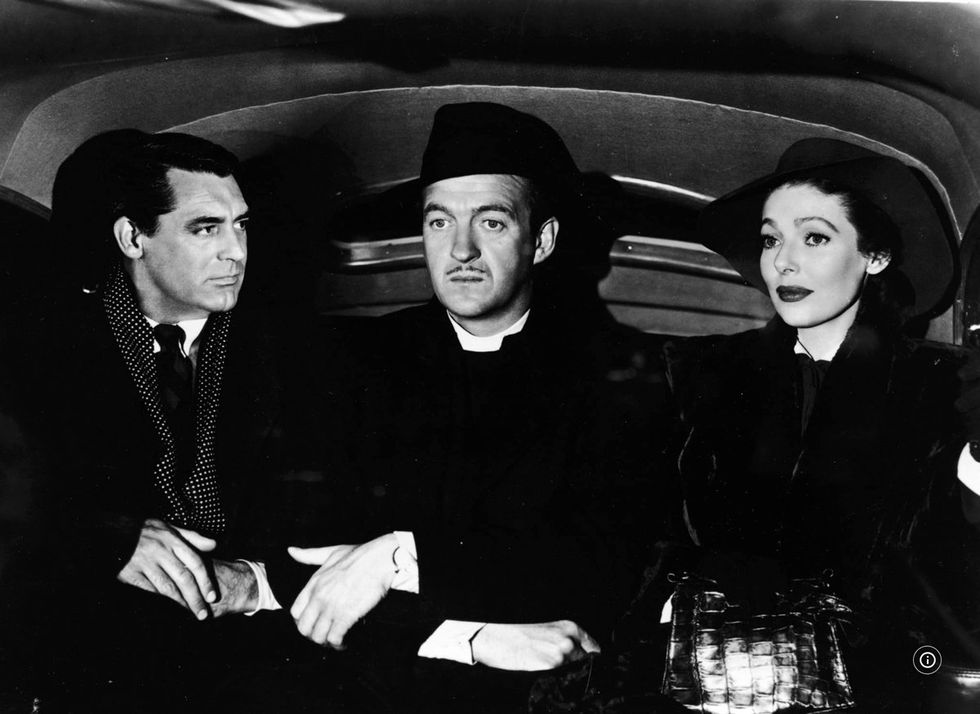
Image: RKO Radio Pictures/Warner Bros. Discovery
More sublimity: In what’s become a holiday favorite, Grant is divine in more ways than one as the angel Dudley, who arrives just before Christmas to help out troubled Anglican bishop Henry Brougham (David Niven), who’s trying to raise funds for a grand cathedral. While Dudley helps convince Henry that people are more important than monuments, the clergyman fears the angel, posing as a mortal, is alienating the affections of his wife, Julia (Loretta Young). The film, based on a Robert Nathan novel, evokes both laughs and tears (along with chills), and it has great supporting performances by Gladys Cooper, Elsa Lanchester, James Gleason, and especially Monty Woolley as a professor who finds his skepticism about religion challenged by Dudley’s presence.
Mr. Blandings Builds His Dream House (1948)
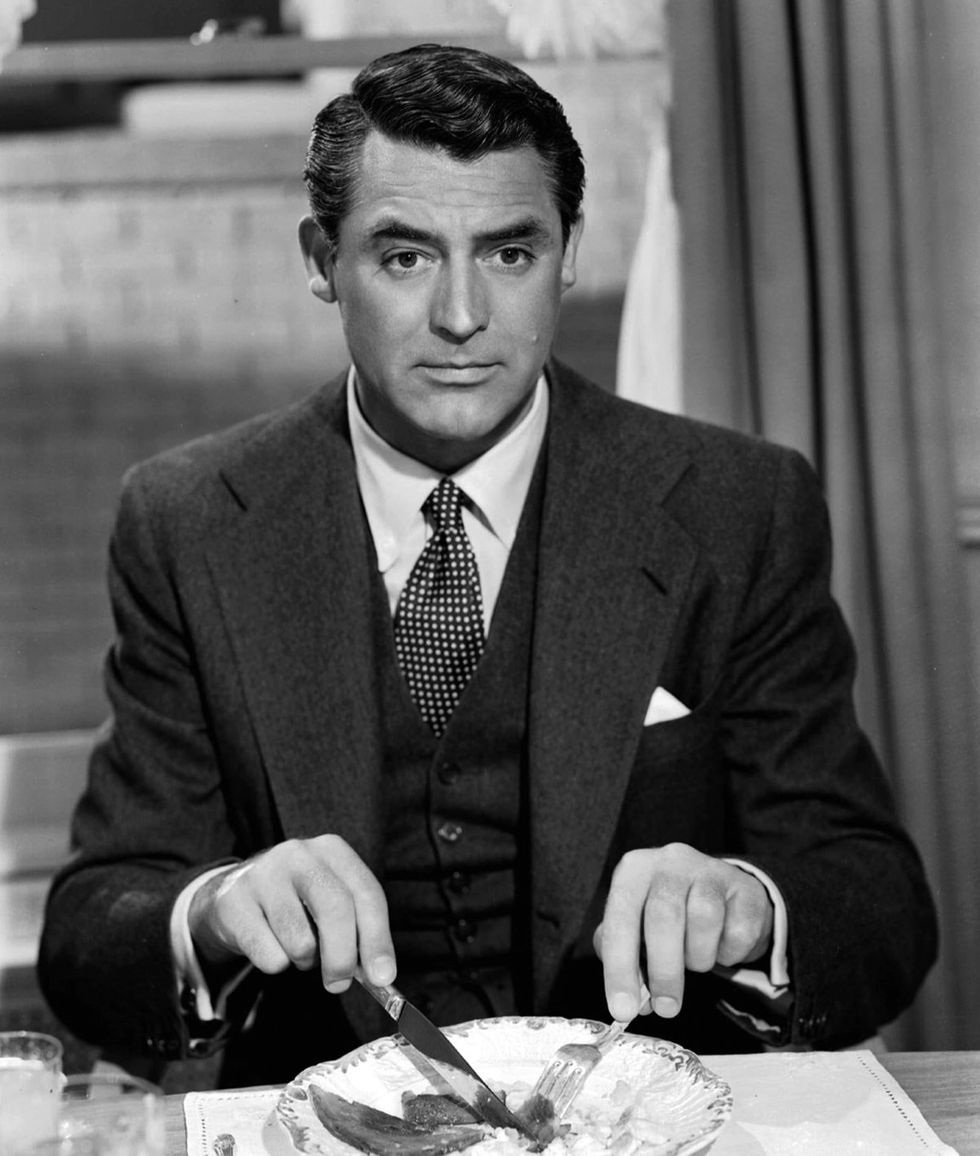
Image: RKO Radio Pictures/Warner Bros. Discovery
Grant is back with Myrna Loy in this comedy about affluent New York City couple Jim and Muriel Blandings (he’s an ad man), who, like many post-World War II city dwellers, decide to leave their cramped apartment for a spacious new house in the suburbs — but the construction becomes something of a nightmare. Melvyn Douglas plays the Blandings’s best friend. Fun fact: To promote the film, “Blandings houses” were built all over the U.S. and raffled off, and a few still stand.
I Was a Male War Bride (1949)
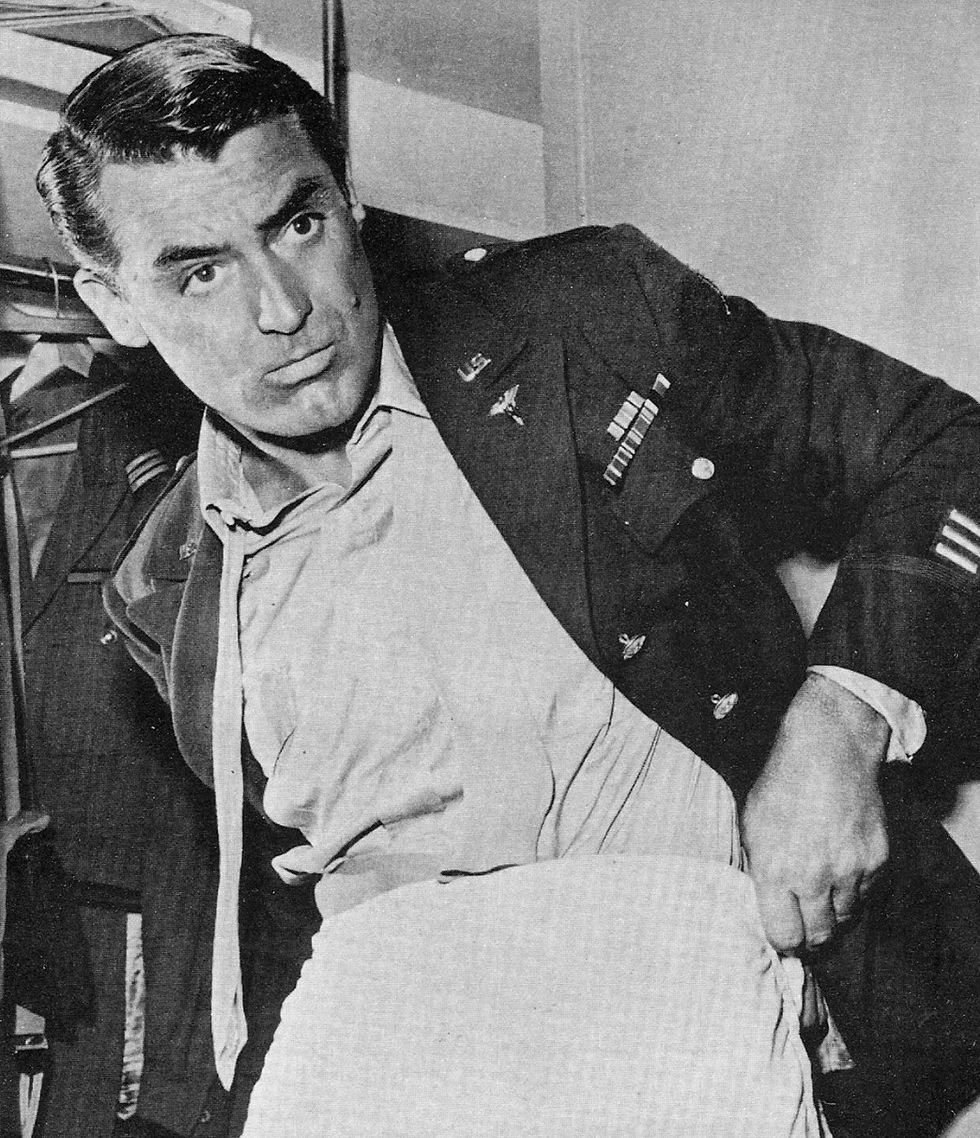
Image: 20th Century Fox
Cary does drag! Well, late in the film, anyway. He’s a French soldier who marries an American military woman (Ann Sheridan, great as usual) and has a little trouble getting to the U.S. with her, hence the need for cross-dressing. Directed by Howard Hawks, the movie has plenty of snappy dialogue and physical comedy.
An Affair to Remember (1957)
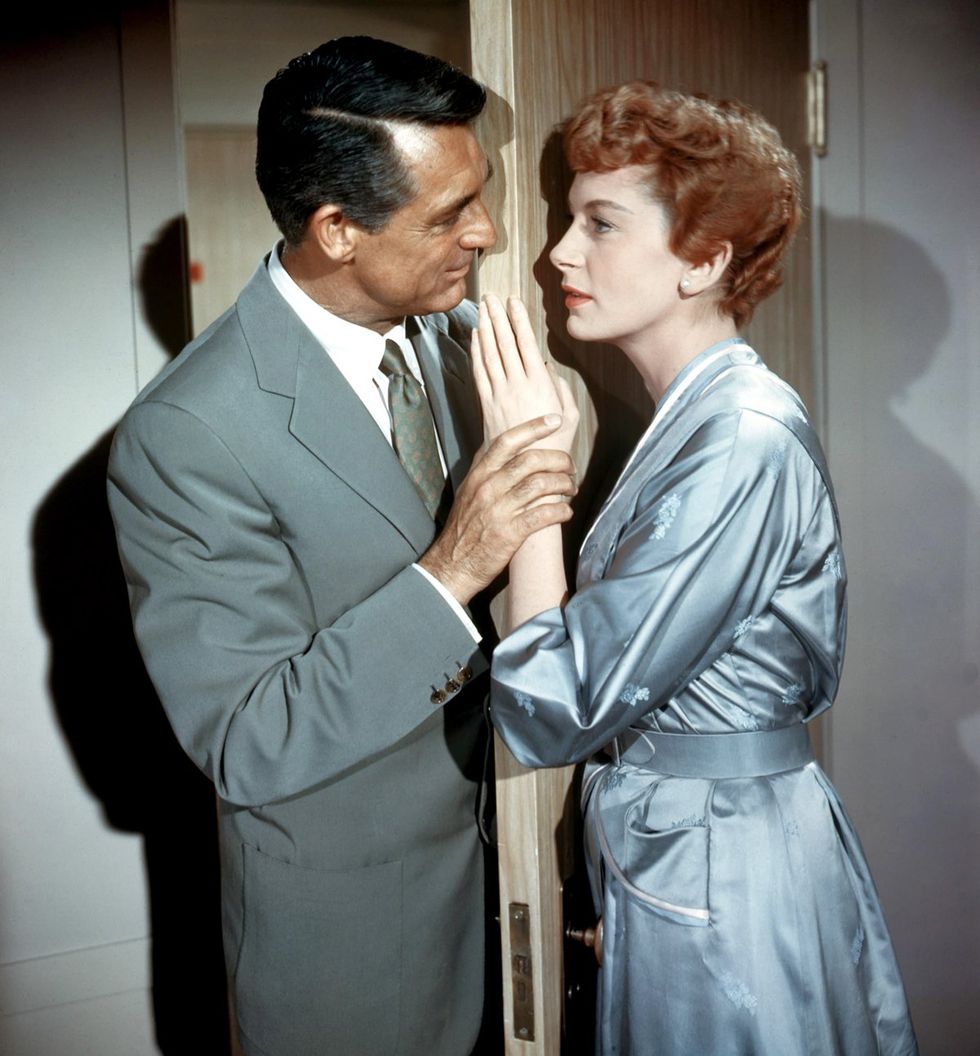
Image: 20th Century Fox
An Affair to Remember is one of Grant’s most beloved sentimental dramas; it’s been referenced in Sleepless in Seattle and elsewhere. He’s playboy artist Nickie Ferrante, who’s about to marry a wealthy woman but finds his plans complicated when he falls for former nightclub singer, now kept woman Terry McKay (Deborah Kerr) on an ocean liner — a mode of travel that afforded far more opportunities for romance than airplanes. They decide to see if they can support themselves for six months, then meet at the top of the Empire State Building. If you’ve seen the film, well, you know the rest. If you haven’t, I defy you not to get caught up in the sentiment, even the sappy theme song. Directed by Leo McCarey, it’s a remake of his 1939 film Love Affair, which starred Charles Boyer and Irene Dunne; the remake has the advantage of Cary.
North by Northwest (1959)
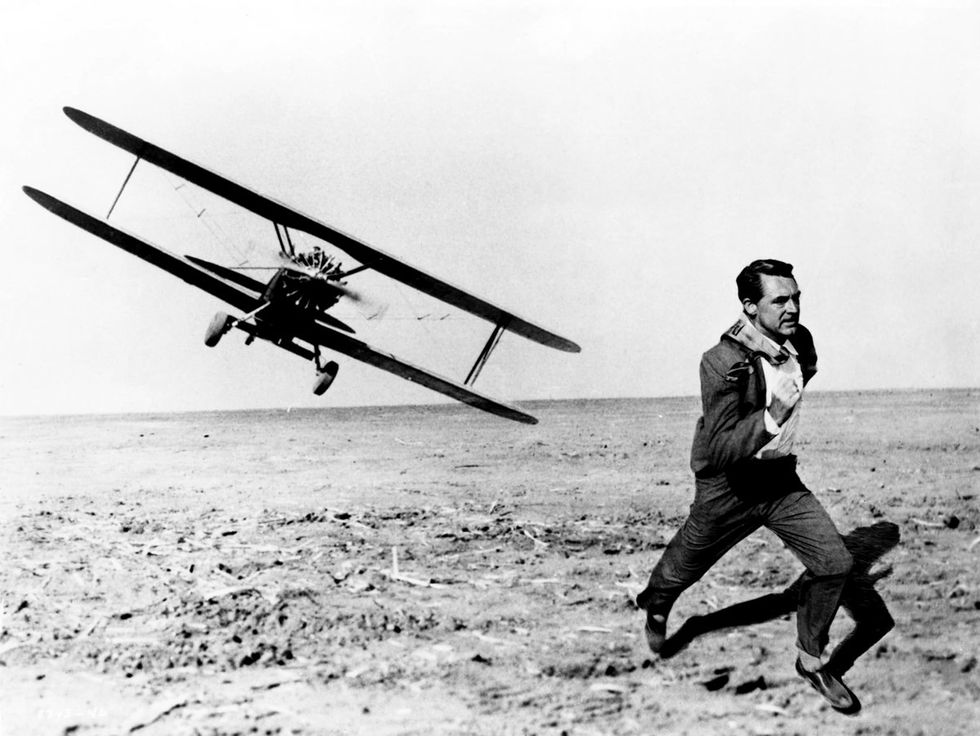
Image: Metro-Goldwyn-Mayer
Grant reunited with Hitchcock for one of the best films in either’s body of work. This Cold War thriller has Grant as New York ad man Roger O. Thornhill (monogram: ROT), who’s mistaken for a spy and has to keep on acting the part. It’s one of the greatest examples of Hitch’s recurring theme of an innocent man caught up in events beyond his control and is full of famous set pieces, such as Grant driving drunkenly on Long Island, being pursued by a crop-dusting plane in the Midwest, and trying to escape the bad guys on Mount Rushmore. There’s also a steamy scene between Grant and Eva Marie Saint on a train (it rivals the one with Bergman in Notorious). Leo G. Carroll excels as a spymaster, James Mason is a delicious villain, and Martin Landau is outstanding as Mason’s obviously gay henchman.
Charade (1963)
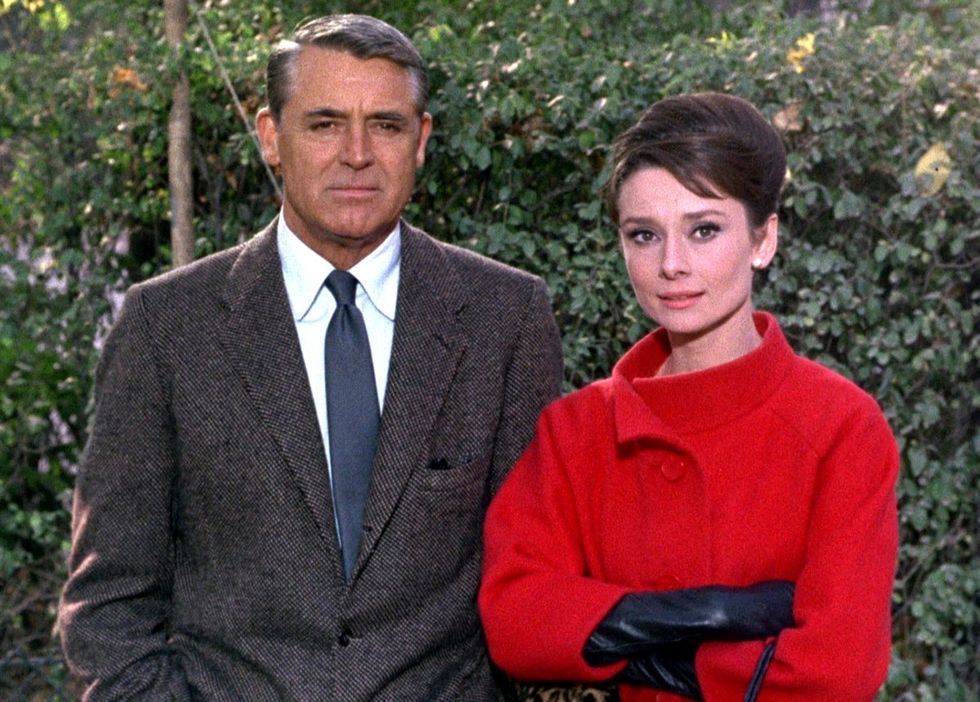
Image: Universal Pictures
Grant’s career was nearing an end when he made Charade — he’d appear in only two more films before retiring. Directed by Stanley Donen, the film is a Hitchcock-style tale, set in Paris with Audrey Hepburn trying to find out why her estranged husband was murdered and seeking to evade the men who did him in (Walter Matthau, James Coburn, George Kennedy, and Ned Glass). Grant is the man of mystery who helps her out. The movie has romance and comedy to go with the suspense, and Hepburn’s clothes, by Hubert de Givenchy, are an added pleasure. BTW, Saint’s clothes in North by Northwest are pretty fabulous too.



